Kuwait, Saudi Arabia Invite Iran To Talks On Offshore Gas Field
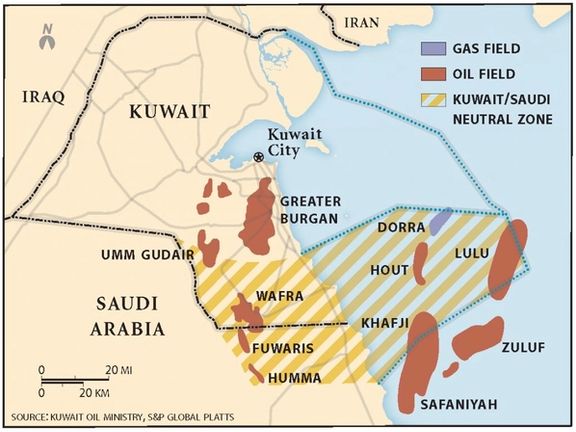
Saudi Arabia and Kuwait Wednesday invited Iran to negotiate to determine the eastern limit of an energy-rich, offshore area, the Saudi state-news agency SPA said.

Saudi Arabia and Kuwait Wednesday invited Iran to negotiate to determine the eastern limit of an energy-rich, offshore area, the Saudi state-news agency SPA said.
The two Arab countries announced in March that they will develop the Durra natural gas field, which is adjacent to Iran’s offshore Arash field at the tip of the Persian Gulf. At the time, that Durra is "entirely a Kuwaiti and Saudi field" and that the issue to be settled with Iran is just the demarcation of the area offshore a neutral zone shared by Kuwait and Saudi Arabia lying adjacent to Iran's maritime zone.
Iran denounced the Kuwaiti announcement on March 26, saying a joint Saudi-Kuwaiti project would be illegal without Iran’s participation.
Foreign ministry spokesman Saeed Khatibzadeh said, "The Arash/Al-Durra gas field is a joint field between Iran, Kuwait and Saudi Arabia. Parts of it are located in areas between Iran and Kuwait whose water boundaries have not been defined. The Islamic Republic of Iran also reserves the right to exploit the gas field".
The two Persian Gulf Arab monarchies reaffirmed their right to develop the Durra natural gas field, located in this area, the Saudi Press Agency added, citing a Saudi foreign ministry statement.
Saudi Arabia and Kuwait expect to produce one billion standard cubic feet per day of gas and 84,000 barrels per day of condensates.
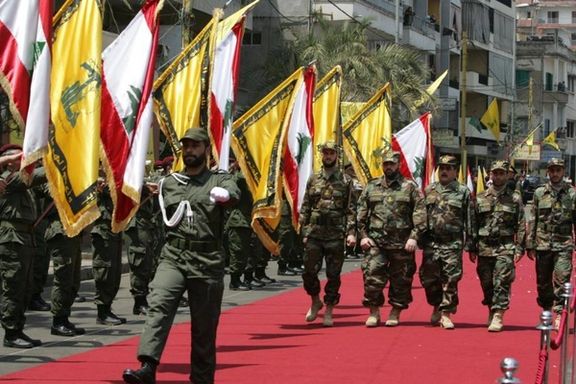
Iran has provided cyber technology to Lebanese Hezbollah and helped group build its own counterintelligence cyber unit, according to The National Interest.
The Washington-based magazine reported on Monday that Iran has helped Hezbollah become “the most sophisticated and influential Middle Eastern terrorist organization in cyberspace after the collapse of the Islamic State caliphate”.
The report, titled “How Iran Built Hezbollah Into a Top Cyber Power”, said the country sees the militants as a “key part” of its cyber program.
The first reason why Iran is “increasingly utilizing Hezbollah as a cyber proxy” is because “it grants Tehran a degree of deniability”, it said
“By training and enhancing the cyber forces of its Lebanese ally, foreign powers may not retaliate against Iranian targets after a Hezbollah-initiated cyber attack”, the article reads.
According to some reports, the Hezbollah cyber unit is likely based in Beirut's southern neighborhood of Dahieh and has computer equipment that is similar to Tehran's Sharif University.
The unit is said to work under the direction of the elite Quds Force of Iran's Islamic Revolution Guard Corps (IRGC), and is primarily tasked with gathering intelligence on Lebanese state institutions as well as conducting cyberattacks on strategic targets in the Persian Gulf states such as gas and oil companies.
According Western cyber security experts, a Hezbollah-affiliated cyber unit, known as Lebanese Cedar APT, launched attacks in January 2021 that lasted for more than a year on telecommunications companies and internet providers in the United States and many other countries.
In 2010, the Obama administration described Hezbollah as "the most technically-capable terrorist group in the world."

Proponents of removing the Revolutionary Guard from a US terrorist list argue that the move would have a symbolic value, while for Iran it is a crucial issue.
However, the IRGC is not simply a military organization. It also controls at least one fifth of Iran's economy. Opposition to delisting IRGC is growing in the US Congress, and one Iranian analyst says it could take months before the two sides resolve the issue.
Media reports indicate the United States has suggested it can delist the IRGC but keep its extraterritorial Qods (Quds) Force on the Foreign Terrorist Organization (FTO) list. From a chronological perspective, the Qods Force was designated in 2007 and it was the Trump Administration that designated the entire IRGC as a terrorist organization in 2019.
Earlier this week, some 250 Iranian lawmakers called on President Ebrahim Raisi to take a tougher position vis-à-vis the United States while some of them insisted that Iran should do away with the nuclear deal as it has not befitted from it.
Iranian academic and international relations expert Amir Ali Abolfath told Rouydad24 news website in Tehran on Tuesday that the Islamic Republic insists "all of the sanctions imposed on Iran after the 2018 US pull-out from the JCPOA should be lifted no matter they are about nuclear, missile or terrorist activities and the IRGC should be delisted."
He explained that if the United States keeps the Qods Force in the FTO list but delists the IRGC, this means that Washington likes to bring back the clock to pre-2019 period, but currently, Washington's plans are not quite clear.
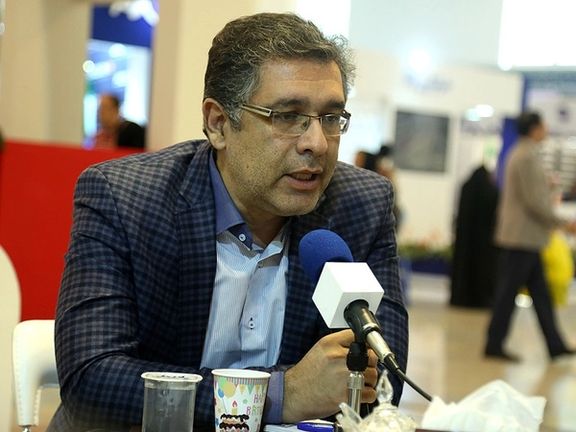
Meanwhile, Abolfath said, "The IRGC is active in many areas including the economy. It owns many companies that could be sanctioned if the IRGC remained listed. There are many non-military companies whose board members were former IRGC officers or were linked to it. This means that If the IRGC remains in the FTO list, Iran's economic benefits from the JCPOA will be affected."
He added: "Iran does not insist on the delisting of the Qods Force as it has no economic activity and its commanders usually do not travel abroad [beyond regional counties]. But IRGC owns companies, such as in the telecommunication and shipping sectors…that will be affected by sanctions."
Abolfath also pointed out that any agreement at this point will not last longer than two or three years. If Republicans return to power, they will do away with the deal. This a challenge for Iranian officials who have already been in this position after former president Donald Trump withdrew from the JCPOA in 2018.
Foreign Minister Hossein Amir-Abdollahian said recently that Iran has exchanged messages with the Washington, making it clear that it is important for Iran that the IRGC's dignity and role remain intact as one of the country's most key security and defense organizations.
He continued: "We can never allow ourselves to tell the US side that we can ignore the problem of IRGC [remaining listed]. Like many other discussions between us and the Americans, the IRGC is also a topic of the negotiations."
Abolfath, however, acknowledged that "the subject of the IRGC is one of the main problems in the negotiations and we have reached a disappointing deadlock over the subject. But the situation might change in the coming weeks. At the end, there has to be an agreement, but it could take another 6 months or a year before we get there."
In the meantime, new US sanctions against companies linked to the IRGC such as Parchin Chemical Industries, Pars Bana-ye Sadr and Sina Composite Delijan in early April has made the situation even more complicated.
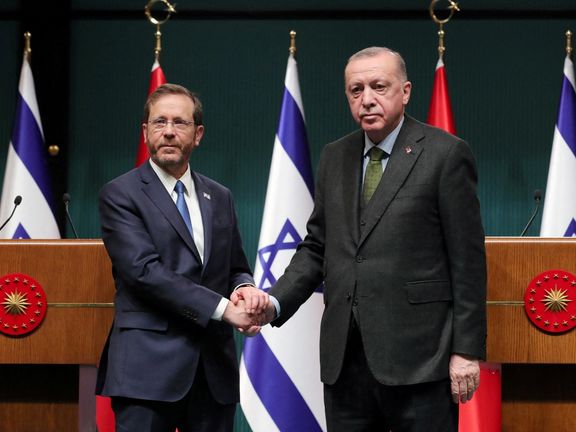
Ankara’s envoy to Washington has called for Israeli-Turkish cooperation in countering regional threats, in a possible hint at Iran, amid improving bilateral ties.
In an article published in Tel Aviv University's Dayan Center for Strategic Studies journal Turkeyscope on Tuesday, Ambassador Hasan Murat Mercan highlighted the strong historical relationship between the Jewish and Turkish nations and urged further cooperation, especially in fields of security and energy.
Without mentioning Iran, he wrote, “Turkish-Israeli interaction offers more than a conventional regional partnership in the face of malign actors and trends”, adding that “Dealing with malign actors and their activities throughout our region is a particular area for enhanced coordination”.
“A more robust regional security cooperation between the two, with a specific focus on fighting terrorism in all its forms and manifestations, will also have an added value to both countries’ national security,” he added.
Calling for engagement on regional affairs, he said that “Turkish-Israeli partnership would be effective to further curb destabilizing moves in broader Middle East and North Africa (MENA)”.
The power competition, which is the dominant trend in today’s world and runs the risk of confrontation, “writes off the so-called value of proxy-led spheres of influence” as “inter-regional and intra-regional alliances are becoming all the more relevant”.
Calling the Israeli President Isaac Herzog’s visit to Turkey “a visible message of peace and partnership”, he said both Herzog and Erdoğan defined the visit as a “new milestone” and expressed their shared goal to revive political dialogue and foster regional cooperation.

The killing of all US leaders would not be enough to avenge the assassination of Qasem Soleimani, an Iranian Revolutionary Guard commander said on Wednesday.
"Martyr Soleimani was such a great character that if all American leaders are killed, this will still not avenge his assassination," commander of the Revolutionary Guards (IRGC) ground forces Mohammad Pakpour was quoted as saying by Iranian state media.
"We should avenge him by following Soleimani's path and through other methods," he added.
Pakpour referred to missile and other attacks against American targets and Israel as alternatives to killing US leaders.
Soleimani was killed in a targeted air strike by the orders of former president Donald Trump on January 3, 2020 in Baghdad. He was Iran's top military and intelligence operator in the Middle East, organizing militant groups in Iraq, Syria, Yemen and elsewhere to attack American targets and US allies in the region.
Since his death, Iranian officials have threatened revenge against former Trump administration officials, including Secretary of State Mike Pompeo.
The statement comes as nuclear negotiations that started more than a year ago in Vienna are in limbo since March, because of Tehran’s demand for the United States to remove the IRGC from its Foreign Terrorist Organization (FTO) list.
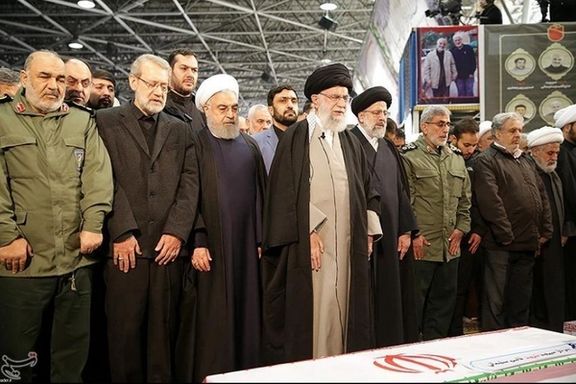
The Biden Administration so far has not accepted the demand, as bipartisan opposition in US Congress has grown to such a move. Pakpour’s statement might be intended to signal a retreat from the intention of killing American leaders, but it would hardly mollify those who aregue the IRGC is a terrorist organization.
However, reports have suggested Washington has been considering removing the IRGC from its foreign terrorist organization blacklist in return for Iranian assurances about reining in the elite force's influence in the Middle East.
Reports earlier also said that Washington might have offered Iran a solution to renounce any revenge against American leaders in exchange for removing IRGC as an FTO.
Then-US President Donald Trump’s administration said Soleimani was targeted for plotting attacks on US interests and that he had helped coordinate strikes on American forces in Iraq in the past through Iraqi Shiite militia proxies.
Pakpour's comments came days after US Army General Mark Milley, chairman of the Joint Chiefs of Staff, said that he does not support removing Iran's Qods (Quds) Force, an arm of its Revolutionary Guards, from a list of foreign terrorist organizations, as demanded by Tehran.
Trump abandoned the 2015 nuclear agreement, known as JCPOA, under which Iran had agreed to curbs on its nuclear program in return for the lifting of international sanctions. Trump said the agreement was weak and could not prevent Iran from obtaining nuclear weapons in the future. He also demanded Tehran stop its meddling in the region and arming militant proxy groups.
Proponents of removing the iRGC from the US terrorist list argue that the move will have little practical impact as other sanctions will remain in place. Opponents of the move say that the FTO list is not just symbolic, and many US anti-terror laws are based on a formal terror designation.
Iran's top authority, Supreme Leader Ayatollah Ali Khamenei, said on Tuesday that his country's future should not be tied to the success or collapse of nuclear talks with world powers.
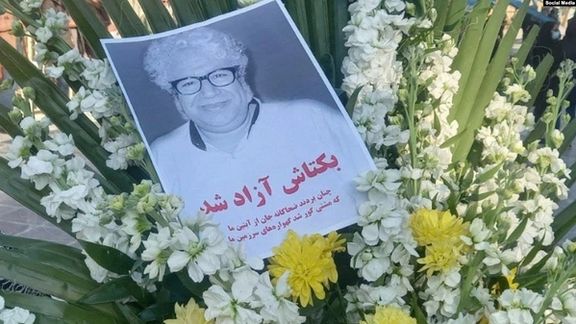
Amnesty International has slammed Iran for prisoner deaths resulting from deliberate denial of medical care, turning prisons into "waiting rooms for death".
In a new report, the global rights organization has documented how prison authorities routinely cause or contribute to deaths in custody, including by blocking or delaying prisoners’ access to emergency hospitalization. The 180-page briefing published on April 12 is based on reviewing ninety-six cases of death in custody in thirty prisons across Iran in the past twelve years.
In many cases, including the case of Nader Alizehi in Zahedan in 2017, prison authorities and its medical staff accused prisoners of "faking" or "exaggerating" their illness. When Alizehi sought medical care, he was sent away by prison clinic staff with gastrointestinal medication and died at the age of twenty-two in prison due to a heart condition.
Another young man, Abdolvahed Gomshadzehi, died in the same prison in Zahedan after prison officials refused to hospitalize him despite prison doctors' warning. The cause of the nineteen-year-old Gomshadzehi's death was neglected blood clots in his brain which he had sustained because of beatings during his arrest and interrogations two years earlier.

Like Gomshadzehi, at least eleven other prisoners out of the ninety-six, died after being denied medical care for injuries resulting from incidents that occurred at the time of their arrest or while they were in prison. The death of the remaining eighty-five resulted from heart attacks and strokes, gastrointestinal complications, respiratory complications, kidney problems, Covid-19 or other infectious diseases for which they had not received the required care.
“Deaths in custody resulting from the deliberate denial of healthcare amount to arbitrary deprivation of life, which is a serious human rights violation under international law," said Diana Eltahawy, deputy regional director for the Middle East and North Africa at Amnesty International who called the authorities' disregard for human life "chilling".
Denial of medical care affects ordinary prisoners as well as political prisoners and prisoners of conscience. In January, Iranian writer Baktash Abtin died of Covid-19 complications after he was denied timely treatment at Tehran’s notorious Evin prison. The Iranian Writers' Association alleged that Abtin’s condition was the direct result of “deliberate delay” to start his treatment.
Abtin was serving a six-year sentence for "propaganda against the state" and “assembly and collusion against national security”, two of the vaguely defined charges categorically brought against political dissidents.
In February 2021, another prisoner of conscience, Behnam Mahjoubi, aged thirty-three died in hospital after falling into a coma. Mahjoubi who was imprisoned for participating at a protest rally alleged he had suffered brutal torture in a psychiatric hospital during his imprisonment.
Out of the ninety-six prisoners whose deaths in custody were reviewed by Amnesty International, twenty-three were between 19 and 39 years of age, and twenty-six of them were between forty and fifty-nine.
Sixty-four of all these prisoners died inside their prison cells meaning they were not given even basic medical supervision in their final hours. Some died while in poorly equipped prison clinics, and at least 26 prisoners died during transfer or shortly after admission to hospital, following deliberate delays by prison medical staff and/or prison officials.
In at least six cases, critically ill prisoners were moved to solitary confinement, punishment wards or quarantine sections - four of these died alone in prison while two were eventually authorized for hospital transfers, but it proved too late, Amnesty said.